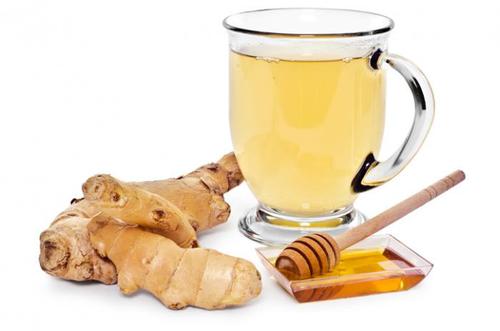Is Ginger Good for Acid Reflux? Find Out Today
What is Acid Reflux
Acid reflux is a common occurrence especially after eating certain types of food. While most people may not be familiar with the term acid reflux, it is what is conventionally known as heartburn.
Essentially, heartburn has nothing to do with the heart, let alone a burning heart. It is just that the region affected is anatomically adjacent to the heart and always manifests with a burning sensation hence the name – heartburn. There is a strong acid in the stomach called gastric acid. It is made of several components, including a potentially dangerous hydrochloric acid of pH 2.0. Anatomically, this acid is prevented from regurgitating back to the esophagus by sphincters made of muscles.
However, sometimes this acid finds its way from the stomach to the esophagus. Since it is a strong acid, it burns the epithelium of the esophagus, a phenomenon that presents as a burning sensation around the heart which is called heartburn.
How Ginger for Heartburn Works
For a long time, ginger has been mythically accepted as a remedy for many health conditions, especially those affecting the stomach.
Nowadays the effectiveness of its use in preventing acid reflux is still not yet fully studied. However, certain hypotheses for its action have been brought forward as follows:
Acid reflux, also known as gastroesophageal reflux disease, is common in individuals with a deficiency or low levels of melatonin, which is a hormone in the body produced majorly by the pineal gland in the brain. Besides regulating sleep and wakefulness, melatonin also helps in tightening the lower esophageal sphincter - the passage allowing food to enter the stomach from the esophagus. With low levels of melatonin, this sphincter does not function effectively.
Ginger acid reflux treatment is based on the fact that ginger naturally has a high amount of melatonin. When consumed, ginger supplements the amount of melatonin available in the body. This increased amount of melatonin helps in tightening the lower esophageal sphincter, thereby preventing unnecessary regurgitation of stomach contents to the esophagus...

Stomach acids do not damage the epithelium of the stomach because a mucous layer lines the stomach protecting it from the acid. This layer is not present in the esophagus, making it susceptible to damage by an acidic substance. Additionally, ginger has been increasingly used in preventing vomiting due to its anti-nausea effects. Nausea leading to vomiting may lead to the damage of the esophagus by the acidic contents of the stomach. This property is very useful in certain surgeries that may prompt vomiting.
Ginger also facilitates an increase in the rate of stomach emptying, thus reducing bloating and formation of stomach gas which are complications that can aggravate acid reflux. The increased rate of stomach emptying is mediated by the effects of ginger on serotonin, another potent hormone in the body.
Foods to Avoid with Acid Reflux Disease
The surest way to prevent the occurrence of an acid reflux is simply by avoiding the consumption of foods and beverages that are known to trigger such symptoms. These foods include:
1. Foods High in Fat
With reduced integrity, food coupled with gastric acid slips through the sphincter to the esophagus even with slight movements of the abdomen. This occurrence is not limited only to foods that cause heartburn, but can also manifest in any type of heavy metal that fills the stomach.
2. Alcohol
Alcohol is a potent stimulator of gastric acid release. The amount of gastric acid produced is dependent on the amount of alcohol you drink. Ideally, if there is a high amount of gastric acid in the stomach due to alcohol consumption, yet there is no food to be digested, the acid will be very volatile. The excess acid can seep through the cardiac sphincter and cause heartburn.
Tips for Preventing Acid Reflux
- Exercise a lot to maintain a healthy body weight.
- Quit smoking.
- Maintain a good posture especially when sleeping or sitting to prevent regurgitation of stomach contents to the esophagus.
- Avoid eating large meals before going to bed.
- Limit your daily use of fatty foods, chocolate, and caffeine.
- Avoid consuming too much alcohol particularly on an empty stomach.
Conclusion
Acid reflux is can be prevented. It is prudent to avoid instances of acid reflux as much as possible because constant irritation to the lower esophagus has been linked to the development of a stomach cancer called gastric carcinoma. Watch the following video to learn more about acid reflux.
YOU MAY LIKE
-
Recognizing Acid Reflux Symptoms and Treatments
-
Apple Cider Vinegar as a Natural Remedy for Heartburn Sensation
-
Best Tips to Lose Weight on a Vegan Diet
-
Why Green Stool Color? Causes and Precautions
-
Best Ways to Stop Stomach Growling
-
A Not So Hungry Hippo: Loss of Appetite and How to Deal With It
-
High Liver Enzymes: Top Causes and Treatments
-
Passing Excessive Amounts of Gas? Causes & Home Remedies
-
Why Can’t You Poop and How to Make Yourself Poop?
-
How Long Does It Take to Digest Food
